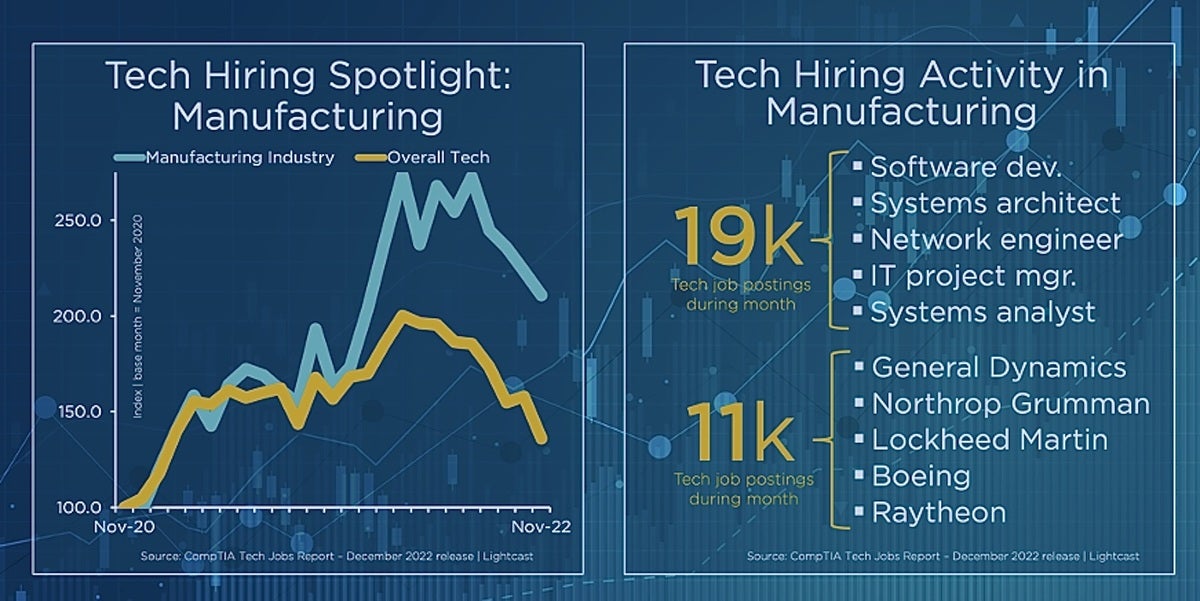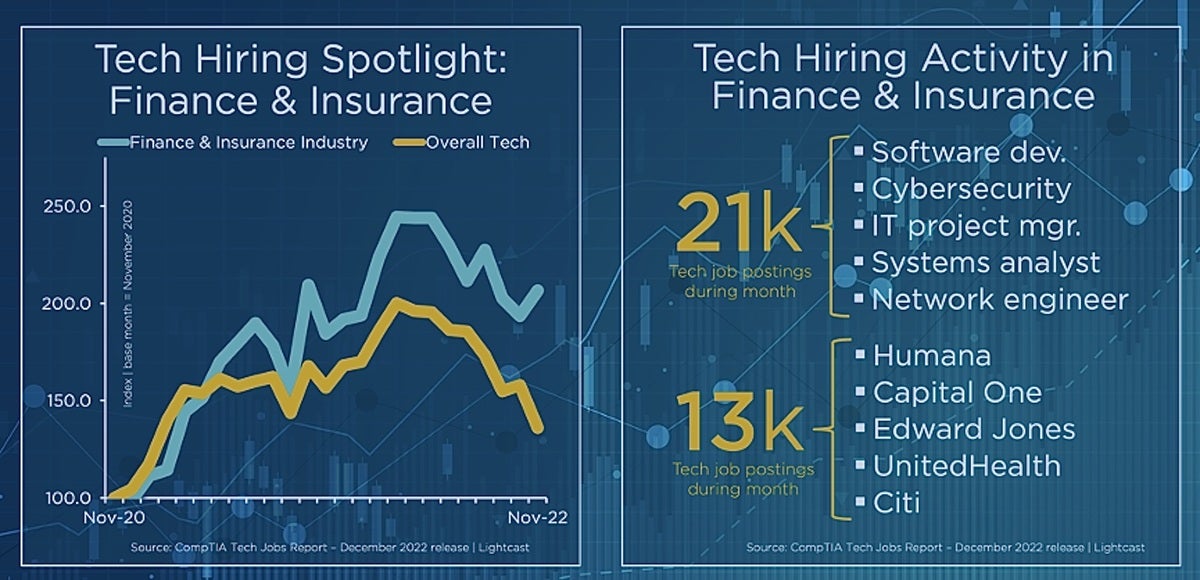Remote work is reshaping industries, allowing for greater employee work-life balance and flexibility while also enabling companies to consider a geographically borderless pool of talent.
The "Computer & IT" category was the top career category for fully remote jobs in 2022, with fully remote listings growing 24% year-over-year, according to job search site FlexJobs.
Employers like Twilio, HubSpot, and AnywhereWorks are a few examples of IT companies that have increased hiring for remote jobs, according to a FlexJobs spokesperson.
Online job search site Indeed recently published a list of the “best” remote jobs available now. That list included technical support engineer, application developer, and software engineer positions.
Technical support engineers, with a national average salary of $67,326, were in the eighth spot in Indeed's top 14 jobs report; application developer positions were in the 13th spot with an average annual salary of $80,761; and software engineer jobs landed in 14th place, with an annual average salary of $113,660.
While not strictly a tech job, project engineers also were also on the Indeed list, with an annual average salary of $74,169.
Top cybersecurity jobs include analysts, managers, engineers, and penetration and vulnerability testers. All but two of the top 10 cybersecurity jobs, on average, pay more than $100,000, according to jobs website CyberSeek.
Meanwhile, according to a new study from HR consultancy Remote, web developer jobs offer the best opportunity for remote work, with data scientists, software engineers, data analysts, and cybersecurity positions rounding out Remote's top five list.
Remote analyzed the 40 most commonly advertised job roles on employer review site Glassdoor, as well as the percentage of listings for each that allowed employees to work outside the office. The study looked at job offerings in the US and UK.
In the US, web developers have the highest chance of working remotely, with nearly 37% of positions advertised as having that option, according to Remote. Web developers also can earn 31% more than the US industry average by working in a remote role.
 Remote
RemoteIT industry association CompTIA publishes an IT salary calculator that includes salary estimates for 15 different jobs (early, mid and advanced career levels) and geographies (50 states plus DC and 400 metro markets). For example, a mid-career software developer could expect to earn a median salary of $122,780 in Denver, $99,880 in Des Moines or $98,540 in Duluth.
The top tech jobs available, according to CompTIA are:
- Software developer/engineer (74,668 positions);
- IT support specialist (17,376 positions);
- Systems engineer (16,984 positions);
- IT project manager (16,062 positions);
- Network engineer (14,609).
 Remote
Remote
The percentage of job postings listed as "remote".
“With employees now demanding more flexibility, companies around the world have had to reconsider their business models to attract and retain top talent,” Remote stated in the study. “As a result, many sectors, job roles, and countries are rapidly embracing a future of remote work.”
A growing number of companies have instituted policies allowing any employee to work fully remote, including Twitter, Meta (Facebook), Airbnb, 3M, Atlassian, Lyft, SAP, Slack, Spotify, and VMware. Many are taking a cue from employees who want to work in a fully remote world, choosing to shutter offices and manage from a distance; other organizations have permanently closed offices that were used infrequently by a small number of employees.
 CompTIA
CompTIAIn terms of industries embracing remote work, in a list of 10 industries, IT was third, with 15.4% of all IT jobs in the US being fully remote. Telecommunications was also in the top 10, but offered only 9.4% fully remote positions, according to Remote.
The numbers from Remote’s study, however, were much lower than those from other research firms. Currently, 43% of knowledge workers, including web designers, system analysts and technical writers, can work fully remote, according to Gartner.
 CompTIA
CompTIAInterest in remote work continues to rise, with 65% of people saying that fully remote work is their ideal arrangement, according to a survey by online job search site FlexJobs.
In its report, FlexJobs compared the number of completely remote jobs posted in January 2022 to December 2022 across 50 career categories in its database. Each of the categories increased at least 20% during that period.
"As our latest list of growing remote careers demonstrates, the range of remote work continues to span various industries, career levels, and roles — creating many opportunities for workers," Toni Frana, career services manager at FlexJobs, said in a statement. "We anticipate this trend to continue well into the future as more employers embrace permanent remote workplaces."
FlexJobs' survey found most respondents chose flexibility over a bump in pay. In fact, 63% of the 4,000 respondents said they would choose better work-life balance over higher pay.
Job seekers are also heavily invested in keeping or obtaining a remote or hybrid job, according to FlexJobs. Eighty-seven percent of respondents indicated a remote or hybrid job would (or already has) improved their work-life balance. Only 3% said they're looking to go back to the office 100% of the time.
Additionally, FlexJobs found:
- 65% prefer a 100% remote work arrangement;
- 32% would prefer a hybrid workplace;
- 57% ssaid they would look for a new job if they couldn’t continue to work remotely.






